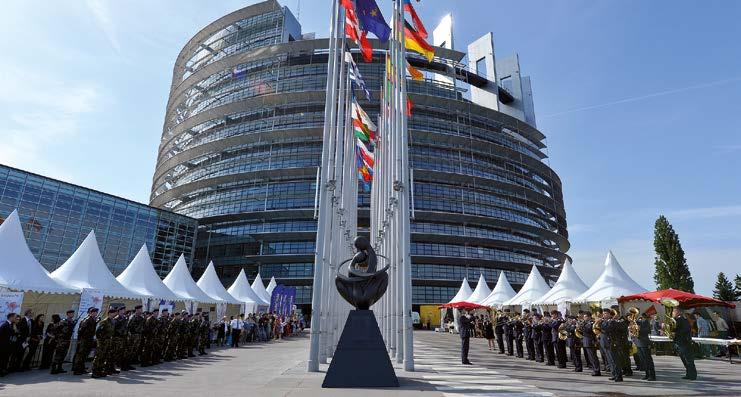
2 minute read
Dr Wolfgang Hellmich MdB, Berlin Our future is Europe New impetus for European defence
Our future is Europe
A robust security architecture will only be possible within a European framework
by Wolfgang Hellmich MdB, Chairman of the Defence Committee, German Bundestag, Berlin
Beyond differences and geographical boundaries there is a common interest – how Jean Monnet characterised Europe’s diversity. While this view has become largely accepted in economic terms, military cooperation and integration of EU Member States still have a long way to go. The challenges range from questions involving the competence of national parliaments, such as the Parliamentary Participation Act in Germany, to differences in public service law, to European cooperation in the armaments area and the interoperability of different European weapons systems. The latter in particular represents a key capability that will enable European forces to work together in the future and ultimately develop a common strategy and leadership philosophy. The aim is not to establish a parallel structure to NATO, but rather to promote Europe’s independence in security and defence policy, strengthen its alliance capability and secure Europe’s sovereignty.
Wolfgang Hellmich MdB
is the Chairman of the Defence Committee
of the German Bundestag since 2015. He
is also a deputy member of the German
subcommittee on disarmament, arms con
trol and nonproliferation. He is a member,
Photo: DBT / Stella von Saldern
among others, of the NATO Parliamentary Assembly, the Interparliamentary Confer
ence for the CFSP and CSDP and the Cyber Security Council in Germany. He has been a Member of Parliament since 2012. His prior roles have included Managing Director of the Social Democratic Party in Dortmund and Düsseldorf and Managing Director of a real estate corporation in Dortmund.
Military integration – grounds for optimism Against this background, the decisions on the Permanent Structured Cooperation (PESCO), the Coordinate Annual Review on Defence (CARD) mechanism and the European Defence Fund (EDF), as well as the envisaged Franco-German armaments cooperation for the Future Combat Air System (FCAS) and the Main Ground Combat System (MGCS), in my view offer grounds for optimism. Nevertheless, these ambitious projects also need the proper backing of financial resources and, above all, the necessary political will in order to be successful. The paramount importance of interoperability and military integration of European forces can be seen not least by the Eurofighter Interoperability Enhancement Programme between the German Air Force and the Royal Air Force. The accord for this was signed on 18 September of this year despite all the upheavals surrounding Brexit, and is intended to harmonise and intensify future projects of both air forces in conjunction with the Eurofighter.
German-Dutch cooperation – a pioneering role With regard to military cooperation and integration, German-Dutch cooperation has assumed a pioneering role, both with regard to the common history of the two states as well as in terms of practical implementation. There are three fields of exemplary collaboration: Common leadership structures: The foundation was laid in 1995 with the creation of the German-Dutch Army-Corps. In recent years, military cooperation between the two countries has been clearly pushed forward in the direction of genuine integration. Nowadays there are both Dutch units under German command and German units under Dutch command. This common leadership structure underlines the great trust and confidence between the two countries which, in view of their history, is anything but to be taken for granted. Armament cooperation: The two states have also decided to cooperate in the digitisation of their land forces. This applies in










